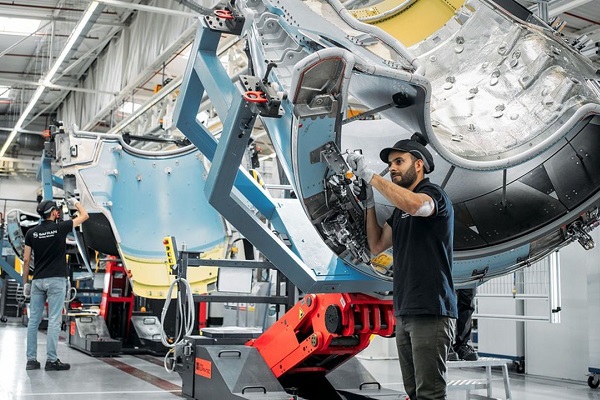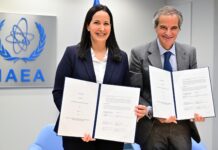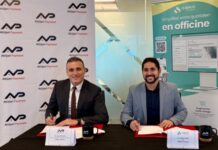Safran has made its choice: the French aerospace giant is setting up its new industrial complex in Morocco, bypassing an expansion at its Villaroche site in the Paris region. The decision is part of a broader strategy to diversify production and reduce supply chain vulnerabilities—a move the company describes as essential in the current global environment.
“We don’t want to rely on a single source,” CEO Olivier Andriès told reporters recently. The new facility, already under construction near Casablanca, will house Safran’s first final engine assembly line outside of France. The group, a key supplier for single-aisle aircraft like the Airbus A320neo and Boeing 737 MAX, is looking to support rising global demand for these best-selling jets.
More than just a logistical choice, Safran’s move is also a strong endorsement of Morocco’s growing reputation as a competitive industrial hub. Andriès praised the country’s momentum, pointing to its modern infrastructure, skilled workforce, and high-quality engineering schools. He also acknowledged the leadership of King Mohammed VI in driving Morocco’s industrial development, crediting a clear long-term vision and a stable macroeconomic climate as major assets.
While Safran continues to invest in France—in places like Ain, where a new facility is currently being built—the company is also candid about the challenges it faces there. Andriès reiterated comments he made earlier this year, declaring that Safran would no longer consider projects in French cities led by green party majorities. His remarks came after backlash from local officials in Rennes over a proposed foundry project that would have created 500 jobs.
As president of GIFAS, France’s aerospace industry association, Andriès expressed concern over what he sees as a growing disconnect between France and more investment-friendly countries. “Sometimes we live in a bubble,” he said, stressing that wealth must be created before it can be redistributed—a message aimed squarely at the national debate on industry and economic policy.
Safran’s shift toward Morocco reflects not only changing global production strategies, but also a wider rethinking of where innovation, jobs, and investment can thrive in a rapidly evolving industrial landscape.





